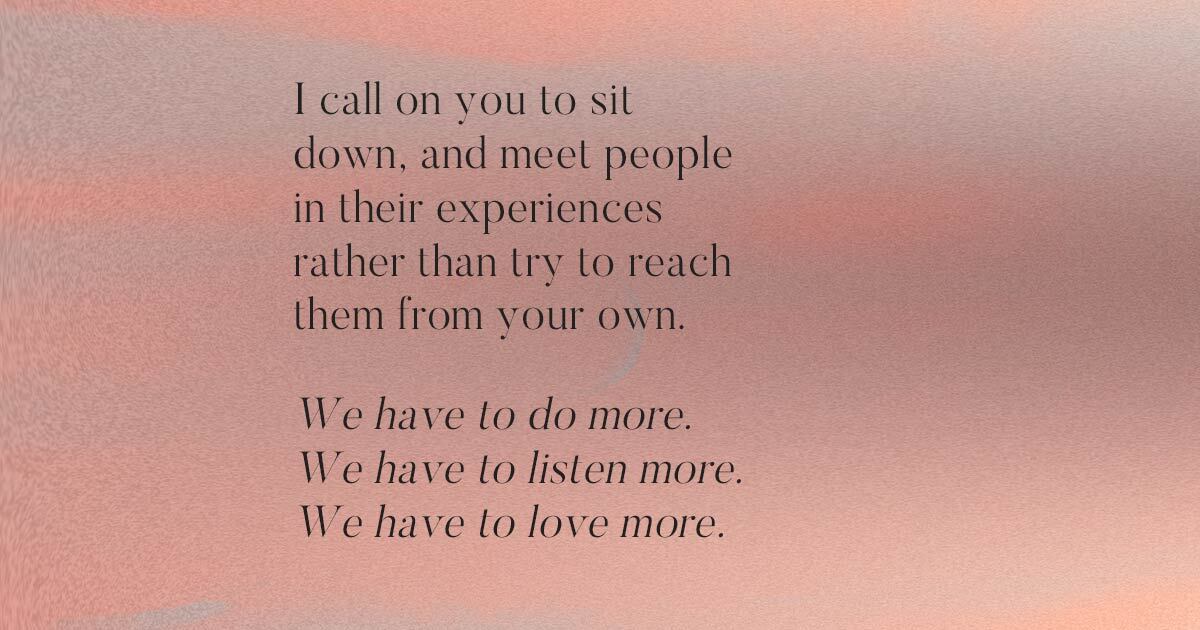The ‘I’ that I am is not separate from the world that I live in, and the world that lives in me.
We seldom talk about mental health in the context of this complex world we inhabit. Yes, social structures affect mental health; so does economic inequality, cultural diversity, history, and politics. World history is tainted with systems of oppression. We have to normalize the fact that trauma can be intergenerational, that the experiences of my people before me can, directly and indirectly, influence the life that I come to live. My life is a story woven hundreds of years before I even came to be. We cannot live with the false assumption that systemic oppression ceases to affect the lives of a new generation simply because its manifestations are not visible to you. Being queer in a largely heterosexual world is hard, being a person of color in a room that celebrates white supremacy is hard, being a queer person of color is hard, and so on. We must do better to understand the intersection of our identities, and how these can influence our experiences in life, and our understanding of mental health.
Minority.
I’ve wanted to sit with this word. I have wanted to understand what this word means to me, for me. There is so much pain in the world today, and so much of it comes from a place of exclusion, a feeling not entirely unfamiliar to most of us. Does my brown skin define me? No, it does not. But it has often influenced the ways in which I move through this world. I’ve been part of innumerable conversations that speak of privilege — the privilege of being heterosexual in a world that’s only just waking up to the reality of individual truth, being a man in a largely patriarchal society, being cisgender in a space where trans lives are questioned every day, being white in a world where people of color continue to fight for the basic right to live with dignity; and I’ve been on both sides of these conversations. There are so many facets to who we are, and how we experience this world we live in. Our complex realities are not standalone entities, they intersect with each other; this intersection can often make us minorities in different spaces, and privileged in some.
Who I am is human. Who you are is human. I like to think of life as this series of doors that lead to many rooms. I know that I will sit in several rooms in this lifetime. In some, I will find myself in a place of privilege; in others, the excruciating vulnerability of being “different” will bring a burden I will be called to fight for. My aim is to understand these distinct yet coexisting realities, to sit with them, and to learn how I can do better so that every person I meet in these rooms feels safe to simply be who they are. I want to be more aware of what I look like in these rooms, and what I can do to make room for more compassion in these spaces.
It takes courage beyond recognition to sit with the realization that you might have played a role in someone’s story that unintentionally introduced pain to their narrative. It might not be you, it might be a representation of your identity. But I think we can do better than to invalidate the pain we cannot understand.
Yes, my experience of life is tied to my mental health, and hence every aspect of my story that influences this experience also influences my mental health. My history is tied to my mental health, the ways in which society teaches me to feel less for being a different color is tied to my mental health, the decisions of my political leaders are tied to my mental health, my sexual orientation is tied to my mental health. Today, I call on you to sit down, and meet people in their experiences rather than try to reach them from your own.
We have to do more. We have to listen more. We have to love more.
